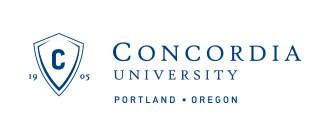Are you a K-12 teacher who wants to pursue an advanced degree? Would you like a greater understanding of current environmental issues? At Concordia University Portland, you might participate in the online Master of Education in Curriculum and Instruction in Environmental Education program. Read on to learn more about it.
<h2 id="section---FrequentlyAskedQuestions">Frequently Asked Questions</h2>
<h3 id="section---WhatKindOfProgramIsIt">What Kind of Program Is It?</h3>
<p>The Master of Education in Curriculum and Instruction in Environmental Education program is designed to prepare you to educate your pupils on matters pertaining to the environment. While developing your problem-solving and critical-thinking abilities, you will have opportunities to study our planet's environment and to learn how the actions of the earth's populations positively or adversely affect it. This Concordia University Portland program operates in accordance with the National Science Education Standards as well as the National Environmental Education Standards. For your convenience, classes are offered in an online format.
</p>
<h3 id="section---WhatAreThePrerequisites">What Are the Prerequisites?</h3>
<p>You should have an interest in nature and environmental science if you are considering this program of study. An undergraduate degree is required. All applicants to Concordia University Portland programs must have earned a high school diploma or equivalent and have at least a 2.8 GPA. In addition, applicants must submit two recommendation letters, a letter of intent, and a resume.
</p>
<h3 id="section---WhatAreTheCourseRequirements">What Are the Course Requirements?</h3>
<p>In addition to four specialized Environmental Education courses, your program will include core requirements and a capstone class. Below is a listing of program courses.
</p>
<p><u>Professional Core Requirements</u>
</p>
<p />
<table border="1"><tr><th>Course Code </th><th>Course Name</th></tr>
<tr><td>EDGR 502 </td><td> Developing Character through the Curriculum</td></tr>
<tr><td>EDGR 535 </td><td> Theories of Teaching and Learning</td></tr>
<tr><td>EDGR 595 </td><td> Community of Learners</td></tr>
<tr><td>EDGR 601 </td><td> Educational Research</td></tr>
<tr><td>EDGR 602 </td><td> Contemporary Educational Thought</td></tr>
</table><p><u>Personalized Environmental Education Strand</u>
</p>
<p />
<table border="1"><tr><th>Course Code </th><th>Course Name</th></tr>
<tr><td>EDCI 512 </td><td> A Study of the Environment: Past & Present</td></tr>
<tr><td>EDCI 531 </td><td> Current Environmental Issues</td></tr>
<tr><td>EDCI 544 </td><td> Teaching Environmental Education</td></tr>
<tr><td>EDCI 551 </td><td> Transformative Learning and Environmental Education</td></tr>
<tr><td>EDGR 698 </td><td> Action Research - Capstone</td></tr>
</table><h3 id="section---WhatCouldIDoAfterGraduation">What Could I Do After Graduation?</h3>
<h4 id="section---CareerOpportunities">Career Opportunities</h4>
<p>Of course, you could pursue career opportunities in educational institutions, but you could also explore other settings, including government agencies, outdoor and environmental centers, or conservation organizations. After acquiring your M.Ed. in Curriculum and Instruction in Environmental Education degree, you might qualify for positions such as:
</p>
<ul><li>Environmental education teacher
</li><li>Environmental education curriculum specialist
</li><li>Environmental lobbyist
</li><li>Management consultant
</li><li>Urban planner
</li><li>State or federal forest ranger</li></ul>


.svg)


